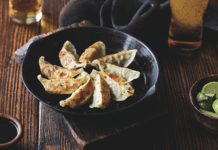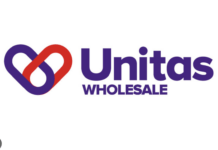With the ‘sugar tax’ coming into effect this month and consumers increasingly health-conscious, Joseph Lee looks at the fastest-growing alternative to sugary drinks and juices – bottled water.
Bottled water is now the fastest-growing segment of the UK’s £7.5bn soft drinks category, increasing sales by more than 10% last year, according to Nestlé Waters data.
Almost two-thirds of that growth comes at the expense of sugary drinks, as increasing awareness of health concerns drives consumers to switch.
“There has recently been a significant focus on the water category and the role that water plays in maintaining a healthy, balanced diet. This has helped to drive sales in the bottled water market,” suggests Silika Shellie, head of category shopper and ecommerce development at Nestlé Waters.
Nearly one in four soft drinks sold is now water and given how much bottled water is sold to customers on the go, it is no surprise that the convenience channel takes 32% of the market.
But there is still room to increase sales further – Department of Health and Social Care guidelines recommend adults drink at least 2l water every day, but Shellie says that 59% of Brits only drink one serving of water or less.
Carol Saunders, head of customer marketing at Highland Spring Group, says: “Wholesalers should consider increasing space to make the most of increasing demand. For many consumers, carrying a bottle of water is as essential as carrying their phone, keys and wallet. Customers within the convenience and independent sectors will recognise this demand, offering an opportunity to wholesalers.”
Sugar concerns
Research by Kantar Worldpanel shows 36% of customers have become more concerned about sugar consumption over the past year.
“Bottled water’s lack of calories, sugar, preservatives and additives, together with its convenience and refreshing taste, provides health-conscious consumers with an alternative to fizzy drinks and sugary juices,” says Saunders.
Simon Harrison, customer marketing director at Coca-Cola European Partners (CCEP), notes that bottled water is a key part of a health food and drink market that has an estimated value of around £22.7bn.
“Consumers have become increasingly more in tune with their wellbeing and this is affecting the way they shop, with 90% saying that they are influenced by health when shopping,” he says.
He adds: “People are also increasingly aware of the many benefits of drinking water and staying hydrated, which is why plain water is in growth.”
A focus on health has provided suppliers with an opportunity to create products with functional benefits, too.
Last year, Lucozade Ribena Suntory launched FitWater, which combines the benefits of plain water with key electrolytes involved in sports recovery. These include magnesium for reducing fatigue, and calcium, which is involved in muscle function.
“As shoppers look for simple ingredients, authentic nutritional benefits and transparent provenance, premium naturally-functional water is a key growth area in the category, and consumers are willing to look further and pay more for it,” says Nichi Boca from mineral water brand Aqua Carpatica – the company’s products are all naturally high in electrolytes.
This emphasis on health and hydration does not mean that customers do not care about brands, though. “Consumers are still looking for specifics when choosing,” Highland Spring’s Saunders suggests.
Bottles from leading brands make up 78% of the value of plain water sales, according to IRI research.
Shoppers are also looking to split the difference between the health benefits of water and the taste of sugary drinks by buying flavoured waters with less sugar.
Adrian Troy, marketing director at AG Barr Soft Drinks, says that flavoured water is growing at 6% and now makes up one in three impulse water sales. The company’s portfolio includes Strathmore Water and it has launched a new Strathmore Botanics range. The range has natural botanicals and fruit flavours to meet the desire for different flavours without any added sugar.
CCEP’s Harrison, says: “The flavoured sparkling water sub-category is particularly popular among young people and millennials, as this consumer group is increasingly health-conscious. But it is also looking for new and exciting flavour options at the same time.”
The combination of health concerns and hydration offers a particular opportunity in the market – children, who may be reluctant to drink plain water. CCEP has created a flavoursome alternative in the form of Capri-Sun Fruity Water, which combines 3% fruit juice with water and is worth £2m in sales.
“Our research has shown that hydration is one of the key category drivers for flavoured water,” says Harrison. “It is recommended that children drink between six and eight glasses of liquid a day to stay hydrated. But with only 40% of children actually doing this, parents need support in encouraging them.”
Plastic problems
Since hydration is an all-day concern, it is vital to stock the right packs for every occasion. But that does not mean creating a bottled water section that is a jumble of formats. Highland Spring’s Saunders says that 67% of sales by value come from just three formats: 500ml, 750ml and 1.5l.
Whether in single bottles, six-packs or 12-packs, 500ml bottles make up 33% of sales. The slightly larger 750ml format is responsible for 14% of sales, often for gym trips or hydration throughout the day.
“The bulk of bottled water sales are made up of immediate consumption formats. Instant consumption packs are especially popular during the summer, as consumers look to hydrate when out and about on warm days,” says CCEP’s Harrison.
The most popular drink-later format is the 1.5l bottle, which in singles and six-packs, makes up 16% of sales.
Increasingly, concerns are focused not on the size of the bottle, but what it is made of. Vivid images of plastic pollution entangling turtles and choking sea-birds in the BBC’s Blue Planet television documentary series started an urgent national conversation about our consumption of plastic.
Manufacturers are responding and suggest that the issue could become a key selling point with consumers.
“Wholesalers should ensure that they are selecting responsible brands that are focused on providing healthy hydration in an environmentally sustainable way,” says Highland Spring’s Saunders.
The company is launching a new glass bottle range for customers who want to eliminate plastic, and is focusing on improving the recycled content of its PET bottles. At the moment, 25% of their plastic is recycled and the company intends to increase that as more recycled plastic of the required quality becomes available.
“It is also our ambition to launch a first-to-category UK trial ‘eco-SKU’, made from 100% recycled PET, for the Highland Spring brand,” says Saunders. “The opportunities to learn from the launch of this SKU – for example, around consumer reaction to a fully-recycled PET on-shelf – are significant for the industry.”
Aqua Carpatica’s Boca stresses that not only does it offer an alternative to glass, its totally-recyclable design is free from a chemical called Bisphenol A, which some researchers believe may have harmful health effects.
“Bottled water is currently experiencing an anti-plastic war, and the resistance to plastic packaging nationwide is only set to grow,” he says. “Wholesalers must understand the true value of water quality and work to educate retail buyers about the importance of consuming premium bottled mineral water that offers a superior quality product for shoppers – in terms of both taste and bottle format.”
Viewpoints
 “We offer 500ml and 1l Volvic options, a cheap variant – which, at present, is Buxton – and several flavoured waters, mostly the Volvic variants. There are so many products out there, we pick them partly on price point.
“We offer 500ml and 1l Volvic options, a cheap variant – which, at present, is Buxton – and several flavoured waters, mostly the Volvic variants. There are so many products out there, we pick them partly on price point.
“Booker has got a fairly good range of waters and it is all in one aisle, which is handy for price comparisons.”
Mark Ansell, Liskeard News, Cornwall

“The discussion about going plastic-free is even now making front page news in our local newspaper. What we have not seen, though, is what impact that will have on our bottled water sales. Wholesalers must respond to consumers’ needs. The industry needs to look at recycling, too: being open and transparent about what happens to the bottles.”
Vince Malone, Tenby Stores & Post Office, Pembrokeshire

“Wholesalers, especially at summer time, should have good promotions on so we can pass it on to the customer. If there is a promotion or a better price on the Tesco own-brand, people will just buy that. But if they see a good price on Evian or Volvic in an independent store, they will switch.”
Bimal Patel, Londis Ferme Park Road, London

“We just have still and sparkling Highland Spring variants. But they are not a big seller, because we have tap water and the majority of customers are happy with that. Takeaway customers do buy some water, though. People these days are not buying bottled water because a lot of them just carry their own bottle. They worry about the plastic use.”
Natalie Kwek, The Haven café, Edinburgh







